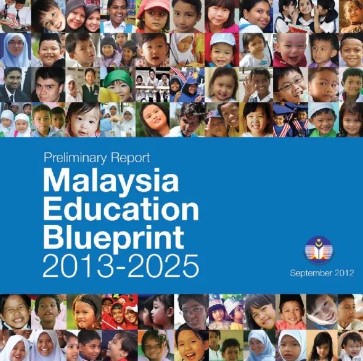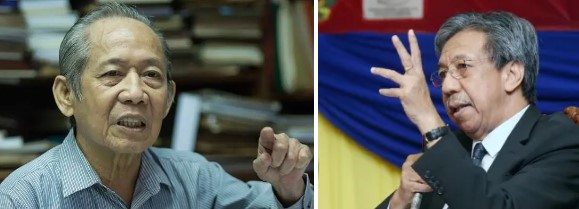Educating “Malaysian Chinese” To Be “Chinese Malaysian” – The SJK Grand Challenge
Emeritus Professor Tan Sri Dato' Dzulkifli Abdul Razak
Opinion - Bacalah Malaysia
March 22, 2024

The topic of vernacular schools (VS) has come up ‘big’ once again in the media – social or otherwise!
In many ways, there is a kind of deja vu. Yet it is not all vanilla this time around, with several new flavours being offered to the larger public audience, unknown previously.
This brings a different taste to the ‘old’ issue at hand, adding some new dimensions to an almost stale state of affairs.
That VS has the right to exist is no longer arguable given the various decisions made by the relevant court(s) involved.
That VS are generally ‘good’ is also not an issue with claims to support an increasing mix among Malaysian school children. Mandarin is an added attention to parents who want their children to muster a third language. Therein lies the first problem!
Foremost, the National Education Blueprints (PPPM) which will end in 2025 have listed six student aspirations to be fulfilled. Including dual language proficiency, namely Bahasa Melayu and English. Learning more languages is encouraged but the two are a must, with Bahasa Melayu being mandatory.

However, it is more complicated than that where the Bahasa Melayu proficiency is called into question, by no less the ministry itself. It is a well-known fact that Bahasa Melayu – that is, Malay language as the national language – suffers the most!
It is worth noting that VS after all belong to a national-type school as in Sekolah Jenis Kebangsaan (SJK). With the exception of using Mandarin or Tamil languages accordingly, their curricula and aspirations must be identical.
The Malay language must be recognised as vital, like all national languages, to heighten social cohesion and bonding, build common national identity as well as fortify unity as a nation-state. This is a worldwide phenomenon of any sovereign country, and it is non-negotiable.
Our ‘sorry’ state of affairs is well stated when ‘national identity’ is still one of the six student aspirations of the PPPM.
Meaning Malaysia has failed to arrive at an important consensus after more than 60 years of independence as a multiracial and multicultural nation!
The oft-used VS as a category tends to hide the reality that its national mission is to educate a new generation of Malaysians (or Malayans, prior to 1963).
Not as Malaysian Chinese (or Sabah and Sarawak Chinese for that matter) as in this case, turning VS into a counter-front to that projected by the SJK!
That said, it is ironic to find out from experience that the majority of the Chinese counterparts in Sabah and Sarawak are more Malaysian than those in the Peninsula.

At the very least, their fluent and well-spoken national language have been in practice even before the setting up of the Federation of Malaysia, despite having their own supposed VS then.
Indeed, they could resonate well with personalities like Emeritus Professor Dato Dr Teo Kok Seong, a well-known Malaysian academic, and the late Emeritus Professor Tan Sri Dr Khoo Kay Kim, the foremost Malaysian historian as luminaries from the Peninsula.

But fewer and far in between unfortunately, thanks to the VS forged in the image of the various political identities.
In fact, this time, Teo, also an expert in ethnolinguistics, stood his ground when he regarded that VS were an “obstacle to national unity” since majority of children were only proficient in their mother tongue.
“The trend is that only the smart ones know Malay and English. The others can only speak their mother tongue,” he said.
He even recalled that the government in the past had tried to standardise the Malay syllabus by lowering the standard of the Bahasa Melayu in national schools so that it could meet “halfway” with the quality of the Malay syllabus in VS.
Again, Chinese education groups had refused to budge, insisting on the cliche “that this will erode the identity of Chinese schools.”
Further, the government encouraged VS to have more Malay language lessons so as to ensure that the Chinese school students had more exposure to the national language. Once again, the Chinese educationists wanted Malay to be taught through translation.
Namely: “They wanted Mandarin teachers to teach Malay by translating Malay into Mandarin,” he remarked. It is therefore not surprising we landed where we are today. Reportedly, some students, like Form 1 and Form 2 students (coming from VS) were unable to cope with the Malay subjects in secondary schools. And have to drop out!
As suggested by Teo, we must first collectively admit that there are problems in our multi-tiered education system and before to seriously start discussing.
“They need to tackle the problem head on. Whether the issue is sensitive or not, they need to do something because our education system is hurting society,” he admitted.
Until this happens, the issue will only worsen as politics get hardened in creating a more chauvinistic thinking that runs contrary to the Falsafah Pendidikan Kebangsaan 1996. – BACALAHMALAYSIA.MY
- The writer is Rector at the International Islamic University Malaysia (IIUM)
